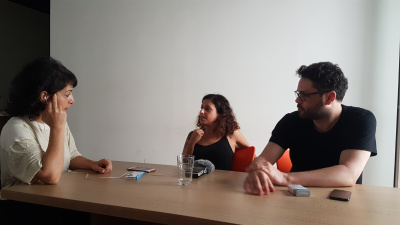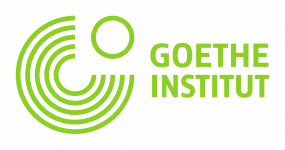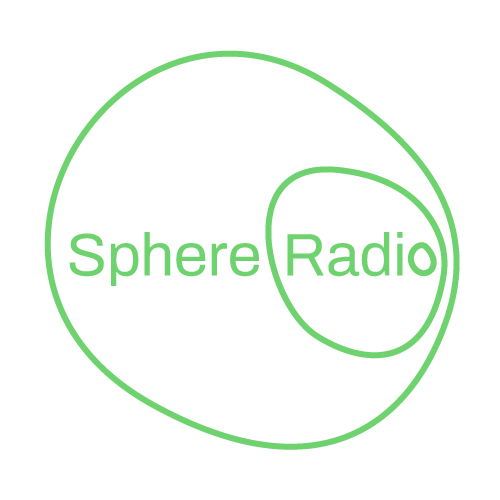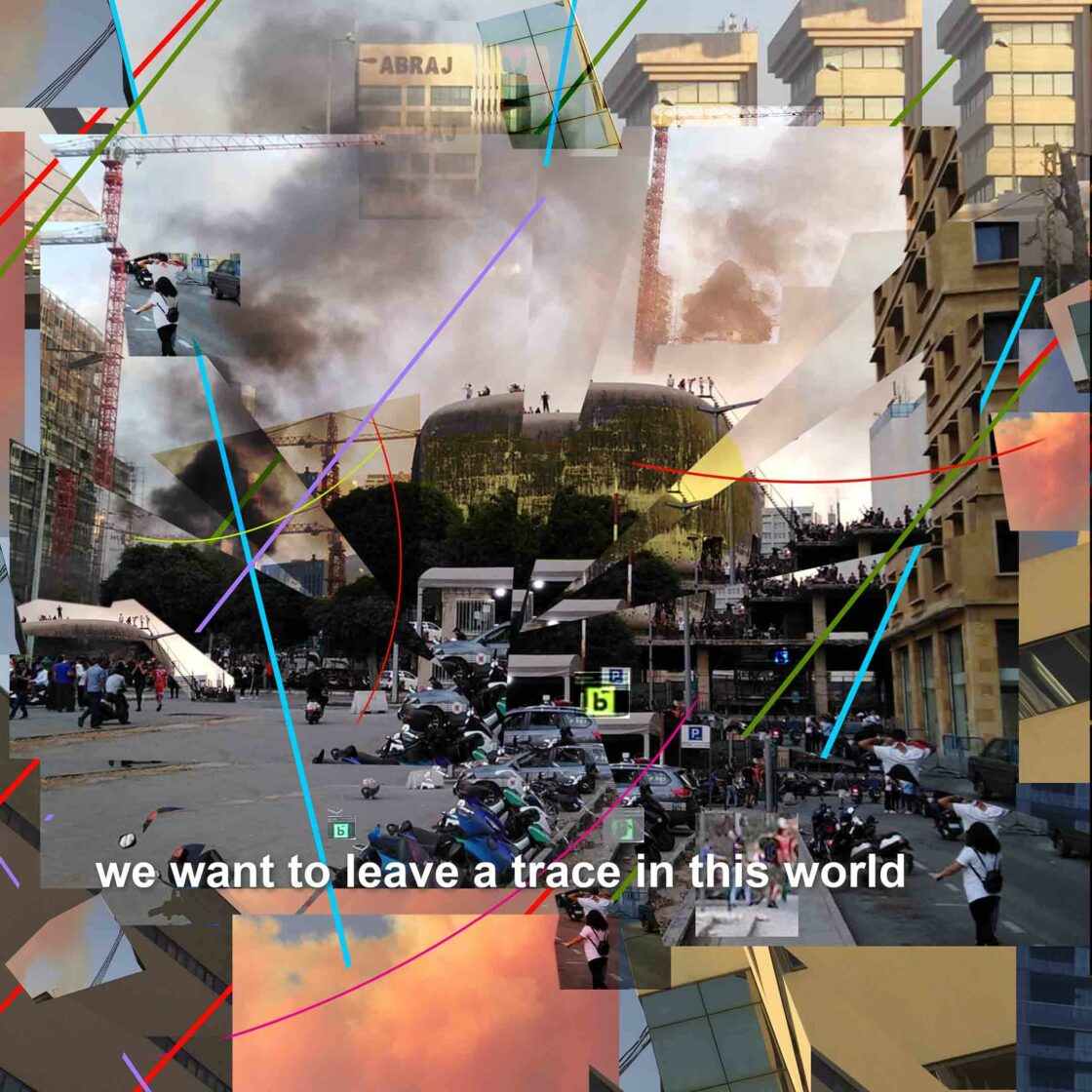Beirut: Traces of a City – A Pod Poem
Episode 6 of the Timezones podcast series, co-initiated and co-produced by Norient and the Goethe-Institut. This episode reflects on the current uncertainties experienced in Beirut and how they have influenced creative processes.
The city of Beirut is a space that is constantly transforming. From the violent conflicts of the recent past to the social uncertainty of the present, Beirut has become synonymous with precariousness.
A podcast by Rana Eid and Nadim Mishlawi
Co-initiated and co-produced by Norient and the Goethe-Institut
Featuring: Chaza Charafeddine, Muriel N. Kahwagi, Sharif Sehnaoui, Rana Eid
Artistic Editor: Abhishek Matur
Project Management: Hannes Liechti
Jingle Voiceover: Nana Akosua Hanson
Jingle Mix: Daniel Jakob
Mastering: Adi Flück, Centraldubs
Artwork: Šejma Fere
→ Full transcript of episode 6
→ Listen to further Timezones episodes
Featured Artists
Chaza Charafeddine is an artist and writer. After 15 years of exploring the fields of education and dance, she turned to photography and writing. Her photographic works have been shown in numerous galleries and artistic venues in Lebanon and abroad. In 2012, Dar Al-Saqi Beirut published her first novella Flashback as well as her subsequent short story collection Haqibatun Bilkade Tura in 2015. After 21 years in Switzerland and Germany, Chaza returned to Lebanon in 2007, where she now lives and works.
Muriel N. Kahwagi is a Beirut-based writer. She is currently researching the politics of documenting sung poetry (zajal) in Lebanon, a project supported by the Arab Fund for Arts and Culture (AFAC).
Sharif Sehnaoui is a free improvising guitarist. Focusing on expanding the intrinsic possibilities of these instruments, he plays electric as well as acoustic guitars, both with and without extended and prepared techniques. After more than a decade in Paris, where he began his career as an improviser in 1998 playing at Instants Chavirés as a member of several orchestras, he now resides in his hometown of Beirut. He has since performed his music all over the world and played at many clubs & festivals such as Moers, Konfrontationen (Nickelsdorf), High Zero (Baltimore), Météo Music Festival (Mulhouse), CTM & Maerzmusik (Berlin), Le Guess Who? (Utrecht), FEST (Tunis), Skanu Mesz (Riga), 100Live (Cairo) and Musikprotokoll (Graz).
Bonus Talk

On Creativity in Times of Crisis and Truthfulness in Sonic Representation
moderated and produced by Nesrine Khodr
This bonus talk features a conversation with the producers of the Timezones Beirut episode, Rana Eid and Nadim Mishlawi, about conceiving the piece and incorporating storytelling into music composition. In light of the economic and financial collapse that has dominated the landscape in Lebanon since 2019, they also share their thoughts on what a collapsing city sounds like, while architect and composer Mhamad Safa talks about his research in sonic representation and his analytical methods in tackling the sound of warfare. Artist Nesrine Khodr interviewed the Eid-Mishlawi team live at the DB Studios in Beirut, while the conversation with London-Beirut-based Mhamad Safa was conducted via correspondence.
Nesrine Khodr is an artist and cultural worker living in Beirut. She has worked across film, performance, and television production and as a dramaturg for performance-based projects.
Mhamad Safa is a musician, architect, and researcher, based between London and Beirut. In 2018, he was a fellow at the Ashkal Alwan HWP. He graduated from the Centre for Research Architecture and is currently a PhD candidate in International Law at the University of Westminster. Safa’s work focuses on multi-scalar spatial conditions and their sonic makeups. He explores their intersections with the aural legacies of traditional and subcultural practices as well as with environments of conflict and violence, often morphed and blurred by geographic and techno-scientific uncertainties. He conveys these auditory inquiries by assembling sound design, micro-sampling, algorithmic sound technology, psychoacoustics, field recordings, and their graphic interpretations.
Playlist
Explore a playlist of artists featured in the Timezones Beirut podcast, their collaborators and their peers in the Beirut community.
Curated by Rayya Badran
The Timezones podcast series plunges into the world of artists and their practices, asking: what does living and working in culture and the arts involve in different countries, cities, and contexts today? The artists’ thoughts on their moods, their social, political, and intellectual realities and their philosophies (of life) have been worked up into experimental audio collages.
The podcasts run the gamut of formats and content, from straight journalism to experimental and documentary approaches, ethnography and fiction, sound art, and improvisation. The Timezones series endeavours to create new artistic forms of storytelling, listening and exchange across the boundaries of geography, time zones, genres, and practices.
The Timezones Podcast Series is co-initiated and co-produced by Norient and the Goethe-Institut.
 This episode is supported by:
This episode is supported by:

links
Sendedatum: 26/01/2023 20:00 - 26/01/2023 20:24
Sendung: TIMEZONES

